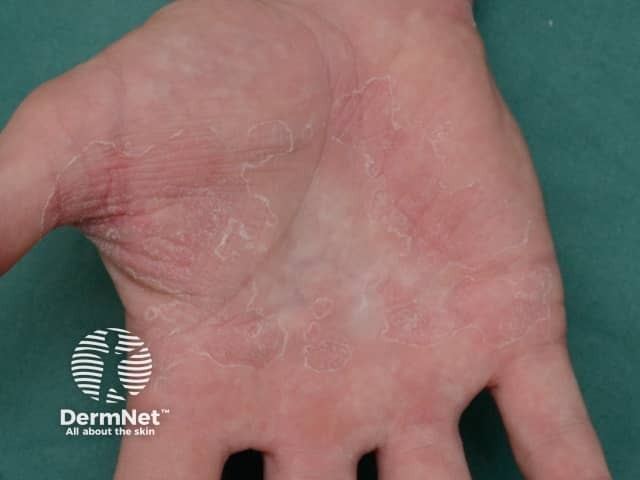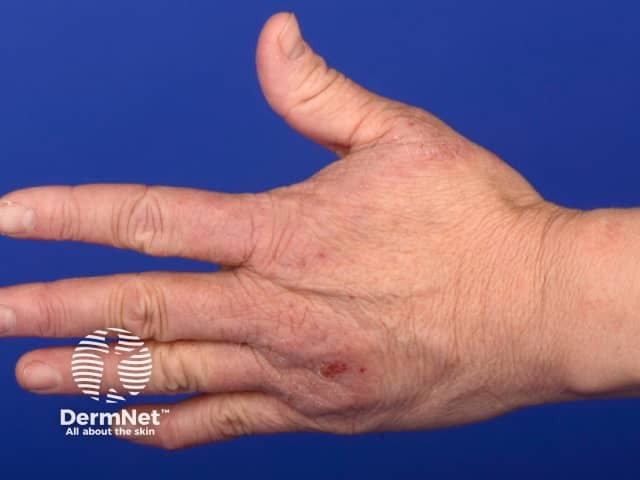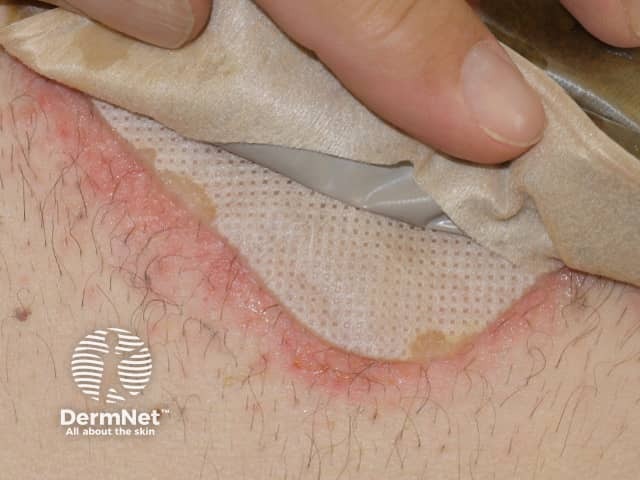Main menu
Common skin conditions

NEWS
Join DermNet PRO
Read more
Quick links
Matthew Nicol, final year medical student, Queen’s University of Belfast, United Kingdom. DermNet New Zealand Editor in Chief: Hon A/Prof Amanda Oakley, Dermatologist, Hamilton, New Zealand. July 2017. Copy editor: Gus Mitchell. September 2017.
Introduction - skin barrier Introduction - barrier cream Ingredients Risks and contraindications
The skin barrier serves to protect the body and prevent water loss. It is formed by the outermost layer of the skin, called the stratum corneum, containing the protein keratin and corneocytes (dead skin cells) held together by a lipid intercellular matrix.
Damage to the skin barrier; for example, due to dermatitis, leads to transepidermal water loss, increased sensitivity to contact irritants and allergens, and inflammation.
A barrier cream is a product applied directly to the skin surface to help maintain the skin’s physical barrier, providing protection from irritants and preventing the skin from drying out. Barrier products can also be formulated as pastes, ointments and sprays. They can also make it easier to remove paint, glue, or sealant from hands during or after industrial or occupational work, without necessitating the use of harsh solvents. They persist on the skin for several hours, even after gentle washing. They are applied sparingly and reapplied as necessary.
Barrier creams are particularly useful in the management of:

Palmar dermatitis

Hand dermatitis

Stoma dermatitis
Ingredients in conventional skin barrier creams can be classified as either occlusives or humectants. Some products have a combination of occlusive and humectant ingredients.
Petroleum-based products are more effective at reducing transepidermal water loss and keeping the skin hydrated. Silicone/dimethicone barrier creams are less greasy and may be preferred aesthetically. Small amounts do not decrease dressing adhesion, hence their usefulness for stoma dermatitis.
Novel barrier creams contain additional ingredients to promote healing of the skin barrier, such as ceramides and vitamin B3.
Barrier creams are usually very well tolerated. Although uncommon, some people may suffer from allergic contact dermatitis to components such as preservatives, fragrances, and other ingredients in barrier creams.
Some occlusive barrier creams may also aggravate acne when applied to the face. Most barrier creams should not be applied directly to broken skin.